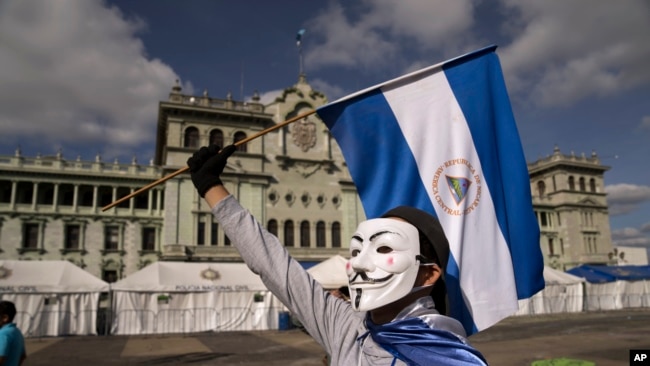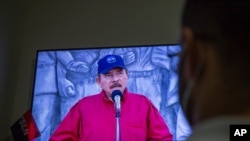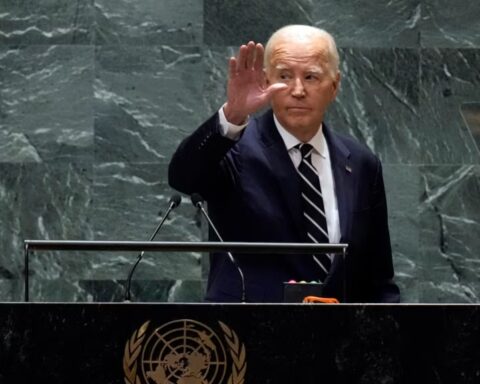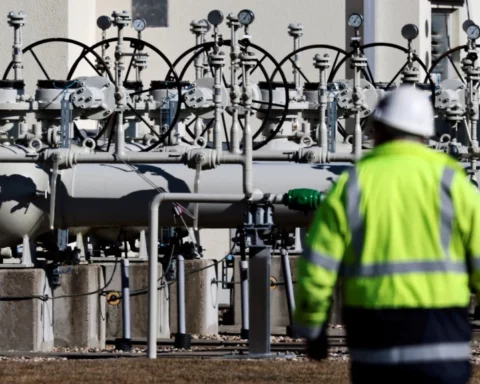WHITE HOUSE — President Joe Biden minced no words in condemning Sunday’s elections in Nicaragua, calling them a “sham” after that nation’s longtime president jailed opponents and brutally repressed dissent to take a fourth consecutive term.
But as of Monday, Biden had yet to sign legislation that had been making its way through Congress for months and is aimed at curbing the Nicaraguan president’s inner circle. The RENACER Act (Reinforcing Nicaragua’s Adherence to Conditions for Electoral Reform Act) had passed with bipartisan support and landed on Biden’s desk last week.
“What Nicaraguan President Daniel Ortega and his wife, Vice President Rosario Murillo, orchestrated today was a pantomime election that was neither free nor fair, and most certainly not democratic,” Biden said in a statement.
He vowed to “use all diplomatic and economic tools at our disposal to support the people of Nicaragua and hold accountable the Ortega-Murillo government.”

In remarks covered by the pro-Ortega La Voz del Sandinismo, Vice President Murillo is quoted as saying the poll was fair. “We receive these votes with humility and a great feeling of responsibility,” she reportedly said, adding: “There is much work we must do to live up to the aspirations and dreams of Nicaraguan families.”
Murillo also said that she and her husband had received congratulatory messages from Russia, Cuba, Venezuela and Bolivia.
Many international media organizations were unable to go into Nicaragua to cover the poll.
Biden urged to sign
In a statement on Monday, U.S. Representatives Gregory Meeks and Albio Sires urged Biden to sign the legislation. Meeks is chair of the House Foreign Affairs Committee; Sires chairs the Western Hemisphere, Civilian Security, Migration and International Economic Policy Subcommittee.
“Last week, we supported the passage of the RENACER Act, which prioritizes U.S. commitment for democracy in Nicaragua and calls on increased coordination with our international allies to continue applying pressure on the authoritarian Ortega-Murillo government,” they said.
“We urge the Biden administration to move swiftly to sign this important legislation into law.”
Had RENACER been signed into law sooner, it might not have affected Ortega’s actions, said Ryan Berg, a senior fellow in the Americas program at the Center for Strategic and International Studies. Berg notes that the longtime leader has become even more emboldened in the face of increased pressure, not just from the U.S. but from the Central American region, as well.

Possible reasons for not signing
Berg testified before Congress in support of the legislation. He said it was possible that Biden didn’t sign the act sooner because he didn’t want it to become the narrative.
“Biden didn’t want the signature on RENACER to be the story of Sunday’s electoral sham,” Berg told VOA. “He didn’t want this to be about the U.S. and Nicaragua. He didn’t want the U.S. action to fall into the camp of rhetoric that Ortega likes to use so much, about imperialism and about how they’re resisting Yankee pressure to the north.”
“But my counter to that would be, this took so long to get done already in Congress,” Berg said. “This has been since late March that we’ve been trying to get a Nicaragua bill passed. Why delay any further?”
Eddy Acevedo, chief of staff of the Wilson Center, said other leverage may come sooner from the 35-member Organization of American States.
“I am confident that there will be a swift response from the U.S. government,” he told VOA. “In addition, we are all urging the Organization of American States. OAS has a meeting in a few days, this week, where they will take up Nicaragua on their agenda and discuss invoking the Inter-American Democratic Charter against Ortega.”
That charter, which suspends OAS membership, has been invoked four times in the past — against Honduras once, and against Venezuela three times.
“Sometimes it just takes a few days from the bureaucratic side for these bills to get to the president’s desk,” Acevedo said, “but have no fear — this legislation will be signed.”
Berg says he fears that, in the meantime, more and more Nicaraguans will decide to leave the country.
“In June or July, right after the wave of repression that saw all those seven candidates for president in prison, we saw a significant uptick in Nicaraguans captured at the border by CBP (U.S. Customs and Border Protection),” Berg said.
“I think they were the second-largest-growing group that month, and I think we can expect to see greater and greater numbers of Nicaraguans showing up at the border in the months ahead.”






